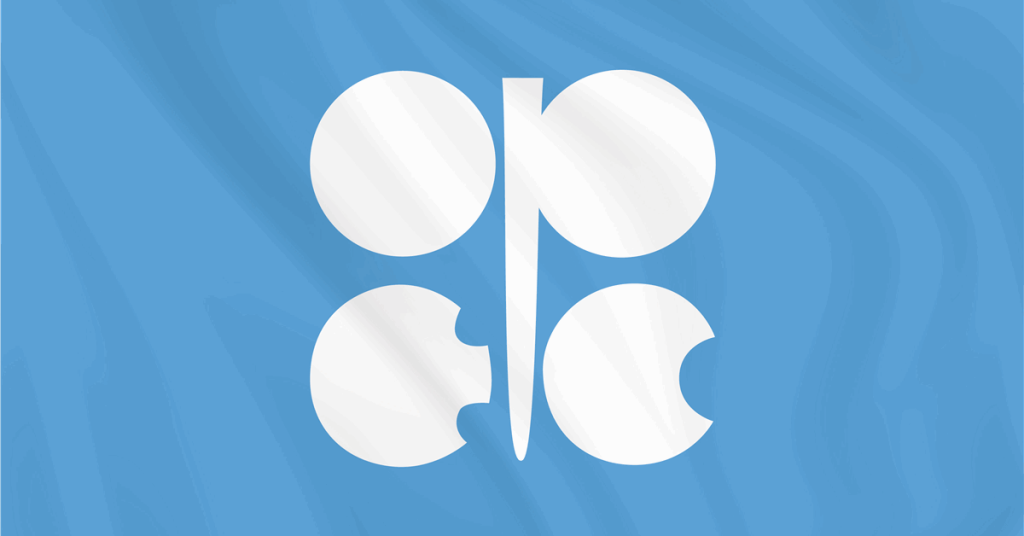OPEC+ nations made a careful start to their long-awaited oil production revival in April, ahead of the group’s plans for a much quicker surge in output in the coming months.
The eight countries who had agreed to increase supplies collectively added just 25,000 barrels a day last month, a fraction of the scheduled 138,000 barrels a day, according to a monthly report from the cartel.
April marked the beginning of the coalition’s long-delayed process to restart supplies idled since 2022. While group leader Saudi Arabia added roughly the amount agreed, output declined in other nations that had promised restraint to make up for earlier overproduction, such as Kazakhstan and Iraq.
Quota compliance has been a top priority for the Saudis, and their frustration with cheating apparently drove recent decisions to accelerate the group’s supply increases by triple the scheduled amount in May and June. Riyadh has even warned of further surges in the months ahead.
The announced hikes, coinciding with President Donald Trump’s global trade war, helped slash crude prices. Brent futures crashed to a four-year low below $60 a barrel last month, but have recovered to trade near $66 in London on Wednesday as trade tensions eased.
Based on the data from OPEC’s Vienna-based secretariat, Riyadh’s drive for compliance is showing some tentative signs of success.
Iraq pumped an average of 3.964 million barrels a day in April, implementing part of the so-called compensation cuts it pledged for earlier quota violations.
Even the biggest offender, Kazakhstan, reduced output by 41,000 barrels a day, but at 1.823 million barrels a day it was still producing about 400,000 barrels a day above its limit. Its international partners such as Chevron Corp. and Eni SpA have said the country’s government hasn’t even asked them to dial back supply – much to the irritation of the Saudis.
In May and June, the Organization of the Petroleum Exporting Countries and its partners are due to add 411,000 barrels a day each month. Ministers will decide on July production levels during a video-conference on June 1, and Goldman Sachs Group Inc. predicts they will agree a third and final hike of about 411,000 barrels a day.
OPEC kept unchanged its projections for global oil demand growth in 2025 and 2026, even though they remain considerably higher than others in the energy industry. Its research department forecasts that world consumption will increase by 1.3 million barrels a day this year, roughly 60 percent above the expectations of JPMorgan Chase & Co.
The International Energy Agency in Paris, which advises consuming nations and publishes forecasts that are more closely watched by oil traders than OPEC’s, will release its latest estimates of supply and demand on Thursday.
What do you think? We’d love to hear from you, join the conversation on the
Rigzone Energy Network.
The Rigzone Energy Network is a new social experience created for you and all energy professionals to Speak Up about our industry, share knowledge, connect with peers and industry insiders and engage in a professional community that will empower your career in energy.
MORE FROM THIS AUTHOR
Bloomberg
element
var scriptTag = document.createElement(‘script’);
scriptTag.src = url;
scriptTag.async = true;
scriptTag.onload = implementationCode;
scriptTag.onreadystatechange = implementationCode;
location.appendChild(scriptTag);
};
var div = document.getElementById(‘rigzonelogo’);
div.innerHTML += ” +
‘‘ +
”;
var initJobSearch = function () {
//console.log(“call back”);
}
var addMetaPixel = function () {
if (-1 > -1 || -1 > -1) {
/*Meta Pixel Code*/
!function(f,b,e,v,n,t,s)
{if(f.fbq)return;n=f.fbq=function(){n.callMethod?
n.callMethod.apply(n,arguments):n.queue.push(arguments)};
if(!f._fbq)f._fbq=n;n.push=n;n.loaded=!0;n.version=’2.0′;
n.queue=[];t=b.createElement(e);t.async=!0;
t.src=v;s=b.getElementsByTagName(e)[0];
s.parentNode.insertBefore(t,s)}(window, document,’script’,
‘https://connect.facebook.net/en_US/fbevents.js’);
fbq(‘init’, ‘1517407191885185’);
fbq(‘track’, ‘PageView’);
/*End Meta Pixel Code*/
} else if (0 > -1 && 73 > -1)
{
/*Meta Pixel Code*/
!function(f,b,e,v,n,t,s)
{if(f.fbq)return;n=f.fbq=function(){n.callMethod?
n.callMethod.apply(n,arguments):n.queue.push(arguments)};
if(!f._fbq)f._fbq=n;n.push=n;n.loaded=!0;n.version=’2.0′;
n.queue=[];t=b.createElement(e);t.async=!0;
t.src=v;s=b.getElementsByTagName(e)[0];
s.parentNode.insertBefore(t,s)}(window, document,’script’,
‘https://connect.facebook.net/en_US/fbevents.js’);
fbq(‘init’, ‘1517407191885185’);
fbq(‘track’, ‘PageView’);
/*End Meta Pixel Code*/
}
}
// function gtmFunctionForLayout()
// {
//loadJS(“https://www.googletagmanager.com/gtag/js?id=G-K6ZDLWV6VX”, initJobSearch, document.body);
//}
// window.onload = (e => {
// setTimeout(
// function () {
// document.addEventListener(“DOMContentLoaded”, function () {
// // Select all anchor elements with class ‘ui-tabs-anchor’
// const anchors = document.querySelectorAll(‘a .ui-tabs-anchor’);
// // Loop through each anchor and remove the role attribute if it is set to “presentation”
// anchors.forEach(anchor => {
// if (anchor.getAttribute(‘role’) === ‘presentation’) {
// anchor.removeAttribute(‘role’);
// }
// });
// });
// }
// , 200);
//});

